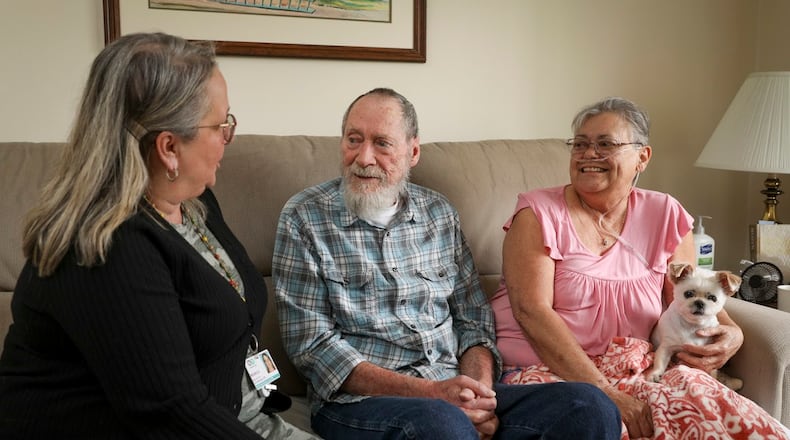The Benefits Enrollment Center is designed to assist limited-income older adults who are Medicare eligible as well as individuals with disabilities apply for cost-saving benefits through federal and state programs, for which they may be eligible.
“We can help them. A lot of times, people don’t even realize they are eligible, or don’t even know how to navigate the system, so we now have a staff person as part of receiving this grant funding from NCOA to be in the community, and the five counties we serve, to help people get those applications in,” Clark said.
She said helping people get connected to the programs gives them a little more money in their pockets to pay for food, or medicine.
“We know the cost of everything has gone up tremendously, so anything we can do to help them get connected, will offset some of their income that they can put toward other things. That’s primarily what the goal is,” said Clark.
As an official National Council on Aging Benefits Enrollment Center, Council on Aging is now able to provide enrollment assistance for an array of benefits, such as nutrition assistance, health care, home energy assistance and prescription drugs.
“We’re finding that many older adults in our region don’t know about the programs we can connect them with as a Benefits Enrollment Center (BEC),” said Jennifer Sorrell, manager. “Many are pleasantly surprised to find out they can save money and make their budgets stretch further after enrolling.”
According to the National Council on Aging, it is common for people to assume they won’t qualify.
For example, many older adults believe they’re not eligible for SNAP benefits, when in fact, as many as 3 in 5 people who qualify don’t enroll.
“We encourage individuals in our service area of Butler, Clermont, Clinton, Hamilton and Warren counties to reach out to us to learn more about which of these programs they might qualify for if they are 65 or older and Medicare eligible. Sometimes people assume they won’t qualify — but then find out once they work with us that they do,” Sorrell said.
Council on Aging will work with individuals to determine if they are eligible for one or more of the benefits. If an individual is eligible, the Benefits Enrollment Center can assist with the application process. There is no charge to the applicant for these services.
The application process often includes help with gathering required documentation and submitting an application. COA’s Benefits Enrollment Center team will also follow up with an applicant after an application is submitted to see if the application has been approved, or if there are any issues that arise.
Those 65 and older and those with disabilities in the COA service area who would like to find out if they qualify for any of the benefits should contact the Council on Aging at (513) 721-1025, menu option 2, and ask to speak to a Benefits Enrollment Center representative.
An applicant who prefers in-person assistance rather than help by phone may visit a COA office. If the applicant is unable to leave their home or doesn’t have transportation to a COA office, a COA staff member can provide in-home assistance.
Council on Aging of Southwestern Ohio promotes choice, independence, dignity and well-being through a range of services that help people remain independent for as long as possible.
BENEFITS
Prescription drugs
• Medicare Part D Extra Help/Low Income Subsidy (LIS) Program – helps cover prescription drug plan costs, including Part D premiums, deductibles and copayments.
Health care
• Medicaid — pays for a broad range of medical services and limits out-of-pocket costs for qualifying, low-income individuals.
• Medicare Savings Programs — help cover Medicare premiums and other related expenses for people with low income.
Nutrition assistance
• SNAP — provides nutrition assistance to eligible individuals and households via a monthly benefit on an Electronic Benefits Transfer (EBT) card, like a debit card, which can be used at authorized retailer stores to purchase food.
Home energy
• Low Income Home Energy Assistance Program — helps low-income households with energy costs, providing financial assistance to pay heating and cooling bills and other energy-related expenses.
About the Author

